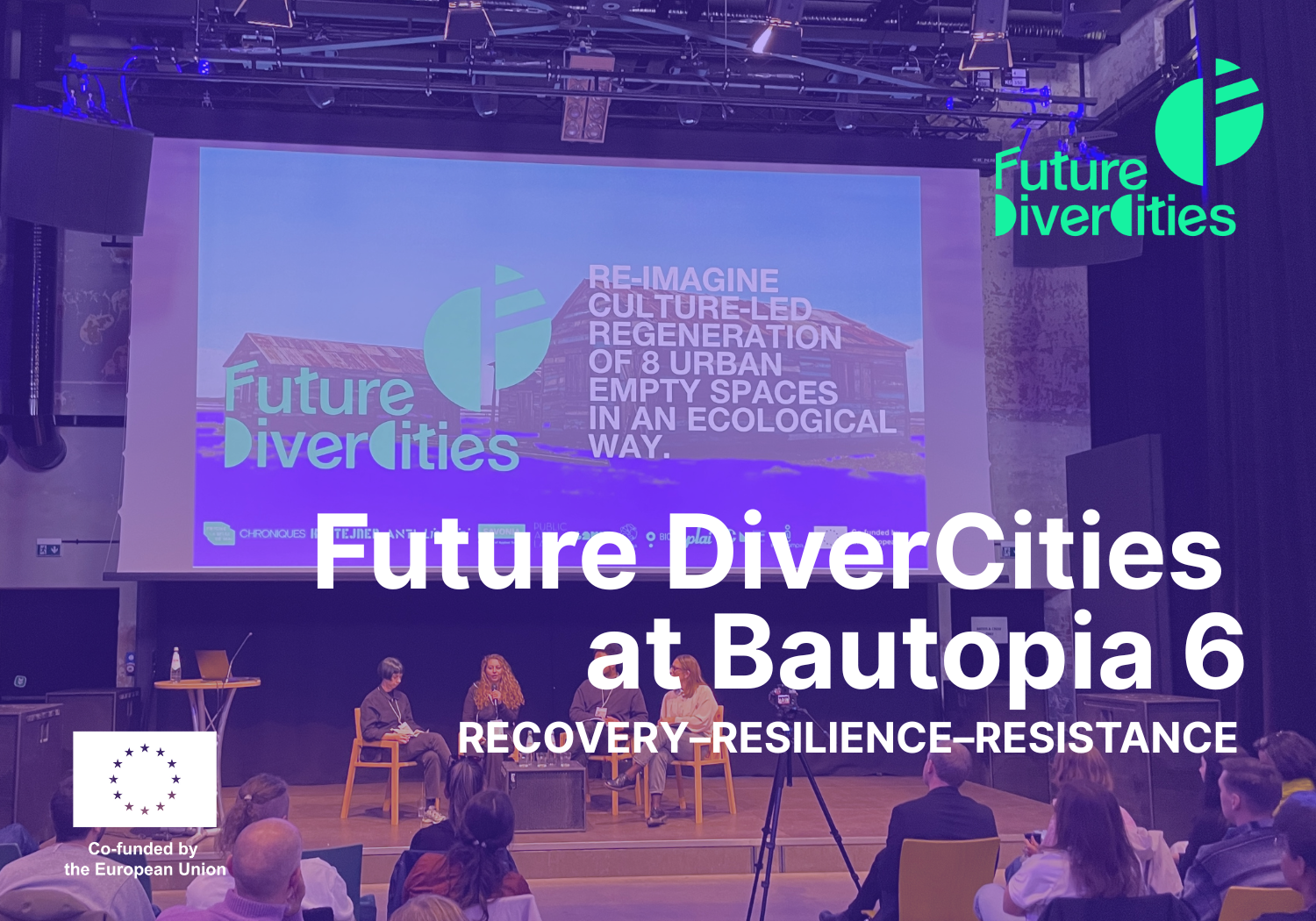From October 15th until 17th, 2025, Future DiverCities participated in this year’s Culture and Creativity Conference, Bautopia 6, organised by the European Creative Hubs Network with the support of Basis Vinschgau Venosta in Silandro, Italy.
Today, cultural and creative structures, especially creative hubs, are navigating a rapidly shifting and increasingly fragile landscape. These spaces, long marked by precarity, are now confronting a convergence of internal pressures and external disruptions: rising real estate costs, tenuous relationships with public authorities, policy ambiguity, and the broader consequences of global crises such as the pandemic, war, and sociopolitical instability. These challenges not only threaten the operational continuity of hubs but also undermine their role as essential infrastructures for civic life, artistic experimentation, and local resilience.
In this context, creative hubs must reimagine how they operate. The Conference title “Recovery, Resilience, and Resistance” offers a framework for transformative action. Recovery speaks to the urgent need to restore disrupted practices and rebuild cultural ecosystems. Resilience demands the development of long-term strategies and capacities to withstand future shocks. Resistance highlights the importance of advocacy, solidarity, and the assertion of cultural value in the face of marginalisation and displacement.
Elisabeth Bechara from La Friche la belle de Mai presented to the ECHN members FDC’s change-making, regenerative activities and implementations. By re-imagining vacant sites across eight European cities with ecological, participatory and artistic approaches, the project advances recovery of derelict or under-used spaces, builds resilience through community-driven models of urban regeneration and ecological activism, and cultivates resistance against the inertia of conventional development or exclusionary urban practices. In this way the presentation perfectly fitted with the conference’s impetus to rethink how creative hubs and cultural actors navigate disruption, re-engage territorial infrastructures and affirm their role as loci of social and environmental agency.
Click here for more info, detailed schedule and program.

